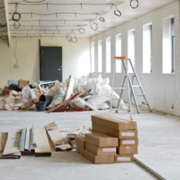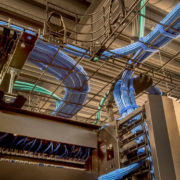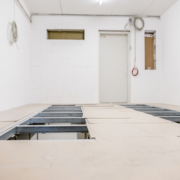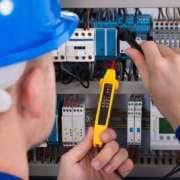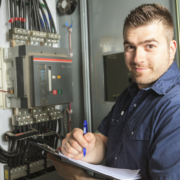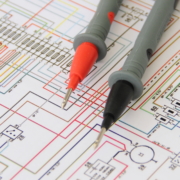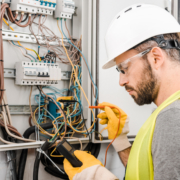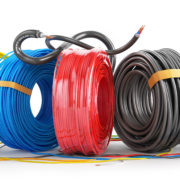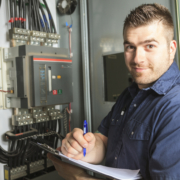Electrical Installation in Construction
Electrical work in the construction field
Electrical systems are a crucial element of any construction site. Modern power tools and machinery are essential when it comes to construction works, so you need to be backed by strong electrical systems. These tools will allow you to complete works quickly and avoid the penalty payments associated with late completions. But where there are electrical systems there is complexity. And there are numerous hazards that come hand in hand with electrical installations. Understanding the setup and components of these systems, therefore, is essential.
Electrical installations on construction sites
Construction sites are hives of activity with all manner of machinery helping to provide a variety of different workforces. Accordingly, there will be a complex network of electrical installations. Therefore, some interlinked and some standalone. The most common systems you might require are:
-
Temporary Power Supply:
Not every construction site will have immediate access to an electricity supply. This could be down to the site being situated in a rural location or down to local geography. However, either way, the only way to bring electricity to your site will be through a temporary power supply. These temporary installations are typically provided by local utility companies and provide your site with a constant electricity supply.
-
Fixed Wiring:
Probably the most important electrical system to be found on a building site, fixed wiring helps support almost all electrical activity on site. In addition, anything that is involved in distributing electrical power from A to B will be part of a fixed wiring system. Distribution boards, power cables and sockets are all part of fixed wiring. Therefore, it’s a system which ensures that your workforce is able to power its tools and complete their work effectively.
-
Circuit Breakers:
A crucial part of any construction site should always be safety. And, when it comes to working with electricity, safety is paramount. The biggest risk associated with electrical systems is electric shock, so your workforce needs to be protected. Thankfully, circuit breakers are systems which minimise the risk of electric shock. When an excess (and dangerous) current is detected, a circuit breaker automatically cuts the current flow. This protects the circuit and anyone working on it.
-
Generators:
Even a construction site with a comprehensive power supply is going to need a helping hand here and there. But help is at hand in the form of portable generators. A common sight on construction sites, portable generators are powered by either fuel or batteries. These additions to your site allow you to operate tools and machinery at all times and in all locations
-
Electrical Switchboards:
An essential part of any electrical system, an electrical switchboard helps to direct electricity on a construction site. The switchboard is a central hub which is used to direct electricity stemming from one main source to smaller areas of electrical activity. Switchboards themselves are divided into several different sections which one main power section and the rest dedicated to distribution.
What Makes A Good Electrical Installation
For more information on electrical requirements for construction sites, don’t hesitate to get in touch and speak to one of our experts.
Electrical Installation for the building sector, get in touch. Call 020 3912 6200

